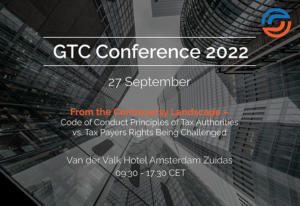Constitutional law
Invalidity of legislation for failure to facilitate adequate public involvement in the legislative process: The Restitution of Land Rights Act 22 of 1994, which deals with restitution of land rights or compensation for individuals and communities deprived of rights in land as a result of racially discriminatory laws or practices, set the cut-off date for lodging claims for restitution as 31 December 1998. Desirous of extending the cut-off date to a new date Parliament passed the Restitution of Land Rights Amendment Act 15 of 2014 (the Amendment Act) that came into operation on 1 July 2014 and extended the cut-off date for lodging claims to 30 June 2019.
The issue in Land Access Movement of South Africa and Others v Chairperson, National Council of Provinces and Others 2016 (5) SA 635 (CC); 2016 (10) BCLR 1277 (CC), was not about the substance but the process by which the Amendment Act was brought about. The applicants, the Land Access Movement of South Africa and others, sought in the main, a CC order declaring the Amendment Act unlawful for having been passed by the National Council of Provinces (NCOP) contrary to s 72(1)(a) of the Constitution, which requires the NCOP to facilitate public involvement in its legislative and other processes, as well as those of its committees. The gist of the complaint was that there was ‘unexplained rush’ in the manner in which the first respondent, the NCOP and its select committee, passed the Amendment Act, which was done in a very short period of one month. The main reason for the ‘unexplained rush’ was the desire to have it passed before dissolution of Parliament and holding of general elections in May 2014. In that rush a lot of rough justice was manifested. For example, after delegating the task of facilitating public involvement to provincial legislatures, as it was entitled to do, rather than facilitating public involvement itself, on being briefed by the Department of Land Affairs and Rural Development at the end of February 2014, the Select Committee (the Committee) of the NCOP had to brief all provincial legislatures the following week, within a very short period of three days. In the week that followed and over a period of five days public hearings were to be held in all provinces, after which on the fourth day after such hearings, provinces were to hold their negotiating mandate meetings to discuss their position regarding the Amendment Act and seven days thereafter, hold a final mandate meeting and prepare a report. Because of a very tight time-frame the envisaged public hearings were not well-advertised, attendance was poor, some public hearings were very short while at some hearings no questions were entertained. For example, in the Northern Cape only one municipality was involved and held a single public hearing while in the Western Cape one public hearing was held, attended by 30 people and lasted 90 minutes. In Gauteng one meeting was held and lasted three hours but no questions were allowed. In the North West all public hearings were addressed in Setswana only, while in the Free State all hearings were conducted predominantly in Sesotho. The list of deficiencies in the planning and conduct of public hearings was simply endless.
The CC held that in terms of s 167(4)(e) of the Constitution it had exclusive jurisdiction in respect of matters in which it was alleged that the President or Parliament had failed to fulfil a constitutional obligation. After careful analysis of all the deficiencies attendant on the public hearings concerned, it was held that Parliament, through NCOP, had failed to satisfy its obligation to facilitate public involvement in accordance with s 72(1)(a). As a result the Amendment Act was declared invalid, effective from the date of the judgment. The purpose of prospective operation of the order of invalidity was to save some 80 000 new claims, which had since been lodged after the Amendment Act came into operation on 1 July 2014. However, the Chief Land Claims Commissioner (the Commissioner) was interdicted from processing those new claims. If Parliament were to fail to re-enact a properly done Amendment Act within two years of the court order, the Commissioner or any other interested party, was given leave to approach the court, within two months after the expiration of the two-year period, for an appropriate order on the processing of claims lodged from 1 July 2014. The NCOP was ordered to pay costs.
Delivering a unanimous judgment of the court, Madlanga J held that the Constitution demanded that the public should be afforded a meaningful chance of participating in the legislative process. The standard to be applied in determining whether Parliament had met its obligation of facilitating public participation was one of reasonableness and depended on the circumstances, as well as the facts of each case. In the instant matter the NCOP adopted a truncated time line for itself and provincial legislatures to facilitate the involvement of the public in the legislative process. That time line was the root cause of all the deficiencies in the process. Given the gravitas of the legislation and the thoroughgoing public participation process that was warranted, the truncated time line was inherently unreasonable. Objectively, on the terms stipulated by the time line, it was simply impossible for the NCOP, and by extension the provincial legislatures, to afford the public a meaningful opportunity to participate.










